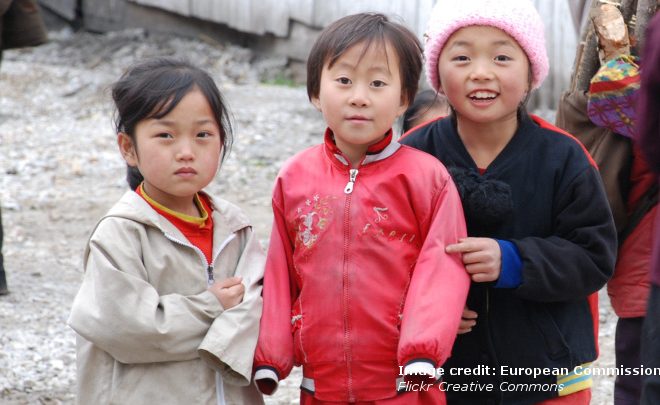North Korea’s Crisis: Sanctions over Disaster Relief

Although many have cried foul over human rights abuses in North Korea, few took up the cause when its citizens suffered from a natural disaster earlier this year. After a devastating flood at the end of August, the provision of disaster relief was made difficult due to increasingly tough UN sanctions not to mention a flagrant distrust in the regime. However, in times of crises caused by natural disaster, should sanctions towards a country’s leadership be prioritized above the well-being of its people?
A ‘major, complex disaster’
From the 27th to the 29th of August this year, North Hamgyong Province in the northern region of North Korea was hit with substantial rainfall combined with a typhoon. Flooding in the area caused the Tumen River to overflow and significant damage was dealt to the surrounding areas.
In total, around 140,000 people were said by the North Korean Government to be in need of humanitarian assistance. There has been further damage caused to 35,000 houses and 100,000 people have been displaced. A needs assessment performed by various UN agencies so far indicates that 138 people have been killed and 395 are still missing two weeks after the typhoon.
Shelter has been considered the top priority due to the approaching winter which will be especially dangerous for children, expecting and breastfeeding mothers, and the elderly. There is also a shortage of food. The flood has damaged around 16,000 hectares of arable land and occurred prior to the harvest period. It has also affected the water supply for the region. There is currently a limited supply of clean water and an increased risk of waterborne diseases from the contaminated water.
The Need for Disaster Relief
The Red Cross has stated that US$15.5 million is needed urgently for disaster relief but raising these funds has been a challenge. In a rare move, the North Korean Government has issued a public call for assistance. However, its demands have been met by a weak response. A few days prior to their call for aid, North Korea conducted their fifth nuclear test. Expectedly, this resulted in great condemnation from the international community. Potential donors questioned how the government could develop missile technology but fail to help its own people in a crisis. Further challenges were made about whether the aid would be used for military means.
As a response, the Red Cross emphasized its independence and gave assurances that the funds donated through the organization will not go through the DPRK. While the regime’s nuclear and missile programs seem to be relatively unaffected by tougher sanctions, the capability of independent organisation to provide disaster relief has been impeded. Restraints on bank transfers have meant that even the UN has lost its banking channel in the country. Other International Organizations have even commented that due to the tougher sanctions, the delivery of aid is more challenging with shipments of supplies being blocked several times upon entering the region.
Approaches to Human Rights and Aid
Even though South Korea and Europe share a common liberal democratic ideology and value human rights, there are still considerable differences in their approaches to North Korean human rights issues. Generally, European countries consider the best remedy for these problems is a balanced combination of assistance, dialogue and diplomatic pressure. In other words, its policy has been comprehensively implemented in conjunction with the objective of humanitarian aid for people who are suffering. It therefore not surprising that the Netherlands, Sweden and Denmark each provided aid after this disaster.
Meanwhile, the South Korean government, together with the U.S., often invite criticism of North Korea’s human rights situation in order to portray the regime as brutal. Indeed, both countries regard economic and humanitarian aid to the North as unhelpful in changing the human rights situation. Correspondingly, South Korea stated that aid to their northern neighbour is not even being considered. Essentially, what this shows is that there is a lack of a common set of principles for the international community to use when it deals with North Korea.
Whilst there is skepticism over the effectiveness of sanctions, it is unquestionable that humanitarian assistance can alleviate the suffering of people. Although humanitarian measures should not be subject to political and security considerations, in this case, they have been.
An obvious solution is that aid should be provided indirectly through the International Organizations and NGOs already present in the country. Organizations such as the International Committee of the Red Cross are independent from the North Korean government; hence, they could reduce the risk that the funds will not be used for military purposes. Furthermore, the type of aid given should also be more targeted. While food supplies may be diverted to other parts of society who are not in immediate need, infrastructure such as shelter, bridges and roads would specifically benefit the people in the affected area not to mention they would be especially useful given the present situation. In this manner, the vulnerable in the country would still receive protection without affecting the contributing country’s relationship with the North Korean regime.